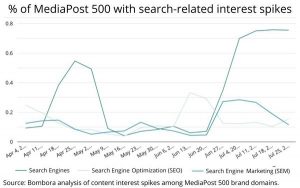
Fall foul of the law surrounding email marketing and you could receive a fine of £5,000 from the Information Commissioner, as well as suffer losses through civil claims. Here are five key points to think about regarding email marketing and your legal requirements.
Obtaining Permission to Send Emails
The starting point with any email marketing strategy is your database – who are you going to target and with what message. There is a difference between business emails and consumer emails and the permission for sending email marketing campaigns to each.
You can target business emails without an opt-in to receiving your emails, but only until they unsubscribe. And of course if anyone does choose to opt-out you have to honour that.
With consumers you need to ask them to ‘opt-in’ and provide their details with permission to receive your emails. Organisations who follow this rule implement either a single opt-in or double opt-in process using verification via the email address supplied.
You can also send email marketing campaigns to consumers following a ‘soft opt-in’ which is where the email recipients details where obtained during the course of an enquiry or sale of a product or service. However, you can only target these customers with similar products and services relating to their original contact.
Allowing Email Recipients to Unsubscribe
Any unsubscribe option at the bottom of your email should be simple and fully functioning. Simply meaning that the recipient should not be required to log in to their account or even input their email address. Unsubscribe via telephone only options are a big no-no, you must allow them to unsubscribe there and then from within the email.
Do you know why people are unsubscribing from your emails? By pre-filling their email address into the unsubscribe form you can ask them to select an option to why they are unsubscribing, which will help you to optimise your email marketing strategy.

Buying and Selling Your Email Data
If you’re thinking of allowing third party companies to access your email database then an ‘opt-in’ needs to be explicit to your subscriber. You will need to give them the option of selecting ‘yes’ to receiving third party emails specifically, and pre-ticked boxes should not be featured.
Our advice is to steer clear of purchasing data or selling your email marketing database . Your email marketing database is a valuable asset and renting it out only decreases that value, while response rates for those using it will be tiny providing a really weak return on investment.
Being Transparent Within Your Emails
For every email sent, whether B2C or B2B, you should make the identity of the sender clear – this must not be disguised or concealed. You’re also required to include your full registered address at the bottom of your email along with your unsubscribe link. By providing full details of your company you’re more likely to gain the trust of the recipient, as well as pass the spam filters.
Understanding Your Legal Obligations
Ultimately it’s not hard to comply with the rules and regulations around email marketing. But, if you push the boundaries you will gain a poor sending reputation and slowly become unpopular with your email recipients, which will effect your brand as well as your email campaign’s deliverability and overall performance.
It’s worth taking time to familiarise yourself with the Data Protection Act 1998 and understanding your legal obligations with regards to your database, personal data and email communications.
Digital & Social Articles on Business 2 Community(68)





